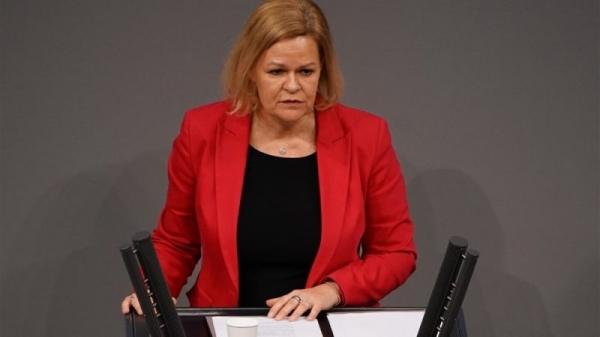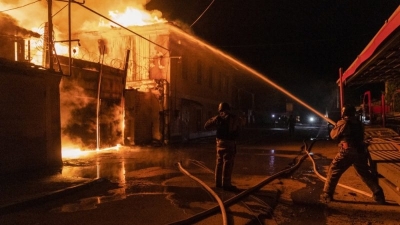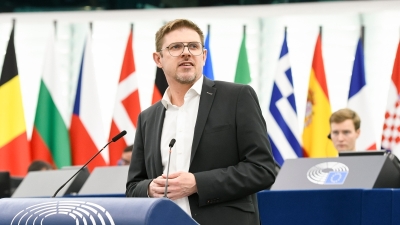No new money for refugee accommodation, German government tells regions

The German government will work more closely with regions on accommodating refugees but will not give more money, Interior Minister Nancy Faeser said on Tuesday as regions warned that they are being pushed to their limit.
Faeser met with her 16 regional counterparts and municipalities’ representatives on Thursday for a “refugee summit” called on short notice after the regions had warned that the high number of refugees to accommodate is beyond their capacities.
Since the start of Russia’s invasion of Ukraine, over one million Ukrainians have fled to Germany, according to data from the Federal Agency of Migration and Refugees, while the number of asylum seekers from Syria and other countries in 2022 was at the highest level since 2016.
However, the regions and municipalities were left disappointed as the Social Democrat minister did not promise any fresh financial help from the federal state – at least until Easter, when a high-level meeting between Chancellor Olaf Scholz and regional representatives will take place.
Instead, Faeser promised to strengthen cooperation between the different government levels, for example, by introducing a migration “dashboard” where data on the status and situation of refugees should be gathered.
“So far, there have been no fixed working structures between the federal government, the regions and the municipalities,” she stressed.
In Germany’s federal system, many of the tasks to do with accommodating refugees, such as housing or education, fall under the competence of the regions or municipalities.
From their point of view, smoother cooperation alone is not going to solve the problems – financial help is also needed to fund new housing, extra teachers and other staff needed.
“In Germany, we now urgently need relief for those who bear responsibility on the municipal level,” Reinhard Sager, president of the Association of German Counties, told Spiegel.
(Julia Dahm | EURACTIV.de)



